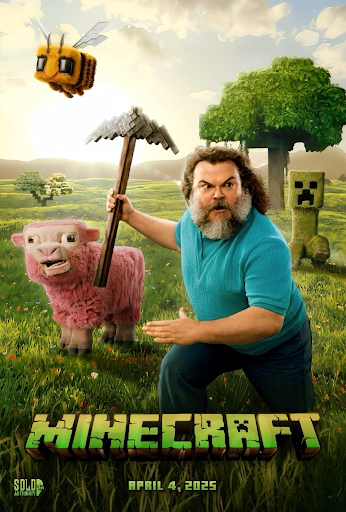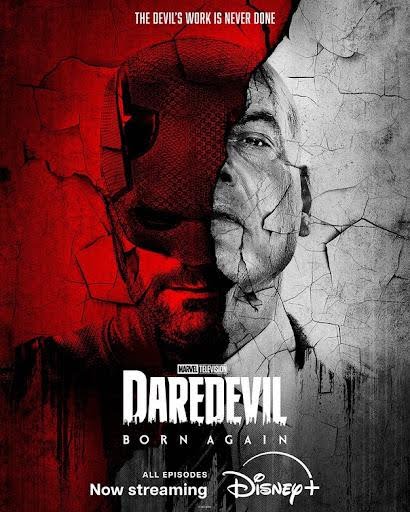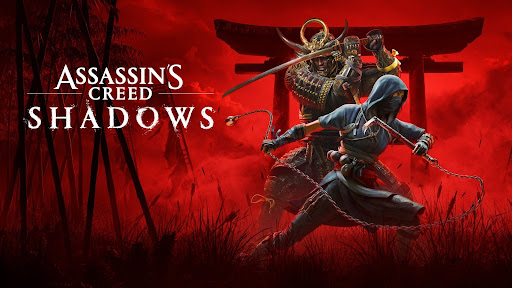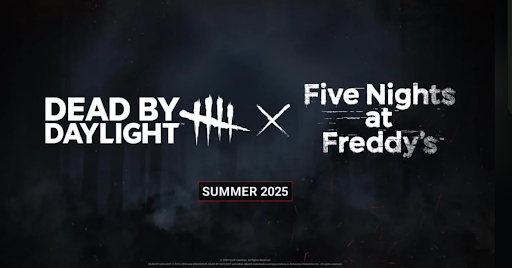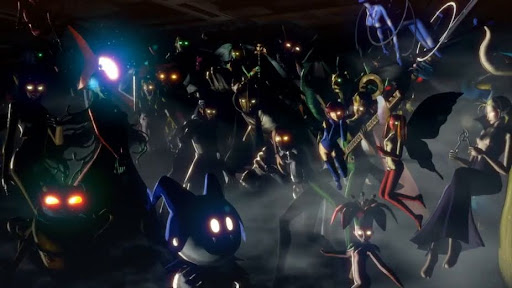
If you’re at all familiar with the gaming community, you’ve probably heard of the Persona series. It’s grown in popularity over the past few years, much in thanks to the masterpiece that was Persona 5. The fact that this game series is garnering such a wide audience is, in my opinion, wonderful. The main Persona games are excellent at conveying themes and characterization towards the player. The more people that experience these games, the better. That being said, I think that many of the newer fans of this series are unaware that Persona is actually a spin-off of the larger Shin Megami Tensei franchise. Heck, even those that may be aware might not exactly know what that means. As someone who’s played much of the larger Shin Megami Tensei series (referred to as SMT from here on), I think a clear distinction is necessary, especially considering that the Persona brand is continuing to grow.
First off, if you like Persona, that doesn’t automatically mean that you’ll like SMT. While most SMT games are turn-based RPGs like Persona, they take widely different approaches to gameplay. A lot of the turn-based SMT games utilize a press turn system. What this means is that your team continues to attack until you run out of turns. Then, your enemies continue to attack until they run out, and the cycle continues until the battle is over. You and your enemies can increase their number of turns by hitting weaknesses of the opponents or by getting critical hits. Turns can also be lost by failing to hit an enemy or attacking their resistances. This is a system that allows you to easily obliterate your enemies, but also allows your enemies to easily overwhelm you. This causes most SMT games to be much harder than Persona games.
Persona balances dungeon crawling with social simulation. That’s part of what causes it to be unique compared to other SMT games. There isn’t much wiggle room with the other SMT games besides a few. They are strictly turn-based RPGs, and they don’t hold back. I don’t want to sound obnoxious and say that they’re the Dark Souls of turn-based RPGs, but it isn’t a far-off statement. I would say that this series probably has the hardest collection of turn-based RPGs I’ve ever played. Take Shin Megami Tensei III: Nocturne (BTW, I’ll take this opportunity to plug my review of that game here), for instance. That game beats you relentlessly, then continues to kick you while you’re down. If you’re not familiar with or you don’t like turn-based RPGs, then this series (besides Persona) is absolutely not for you.
So get this: Persona isn’t the only spin-off series to come from SMT. Off the top of my head, I can think of Devil Summoner, Devil Survivor, and Digital Devil Saga. They each bring some new tweak to the core gameplay, but otherwise the turn-based system doesn’t go anywhere. For example, Devil Survivor incorporates gameplay from strategy RPGs, such as a map grid to move characters. However, there are still turn-based battles included. Now, compare this to Devil Summoner. This series includes games like Devil Summoner: Raidou Kuzunoha vs. the Soulless Army and Devil Summoner: Soul Hackers. The former is an action RPG, whereas the latter is a classic turn-based RPG. They’re both titled “Devil Summoner” and are spin-offs of SMT, yet they have widely different gameplay. Confused yet?
The good news is that like 95% of these games aren’t connected in the slightest. You can jump into most any game within the SMT umbrella, and you’ll be good to go. Many of these games revolve around or include mythological beasts. From the titles of the spin-offs, can you venture a guess to what mythological beasts exactly? Devils, or demons, take center stage. If you know Persona 5 then you’re aware that a way you can receive new personas is by negotiating with shadows and convincing them to join you. Well, that’s taken to the extreme in SMT. Demon negotiations in SMT games aren’t as easy as they are in Persona 5. In SMT, it isn’t just about choosing the correct responses. You may have to give up items or even HP. Negotiating can really be a pain, as you have to balance the correct responses while also being aware that your health can be drained, causing future problems. Even then, demons can just dip without joining your party. Speaking about your party …
Mainline SMT games don’t have a few party members to pick from. Your party is composed of demons you’ve convinced to join you or fused together. This means that your party is constantly changing as you recruit or create stronger demons. You aren’t getting attached to characters as you watch them physically grow stronger throughout the game. Your goal is to get rid of weaker party members to make room for stronger ones. However, that isn’t to say that all SMT games besides Persona use this. A Game like Soul Hackers 2 has a set party with demons acting as secondary party members, so to speak.
SMT games keep consistent characters. In other words, demons. Throughout basically all of the SMT games, you’ll find the same demons acting as your enemies. Each game tends to introduce new demons while also keeping some of the old. Take the demon Pixie, for example. You’ll find her in the beginning areas of pretty much every SMT game. Many demons keep their weaknesses and skills from the other games. Again, we’ll use Pixie as an example. She’ll learn many of the same skills across the board, which have pretty much the same effect in each game. This means that you won’t completely be going in blind, as once you’ve played one SMT game, you’ll be acquainted with the types of attacks and support skills you can use.
Alright, so there’s one more point I want to touch on. It comes from the content in these games. For what it’s worth, Persona manages to keep a lighthearted tone while also getting darker themes and messages across. SMT, on the other hand, doesn’t really opt for lighthearted tones. Don’t get me wrong, there are occasional moments of fun story or character beats, but overall, they’re on a darker level. Even one of the more lighthearted entries, Shin Megami Tensei IV: Apocalypse, has a moment that causes me to shiver whenever I think about it. It comes in the form of a character portrait, and it, coupled with the scene it’s featured in, is just unsettling. I mean, these are demons we’re talking about. They ravage and murder humans, and trust me, these games don’t pull their punches. They’ll gladly inform you about a half-eaten corpse of a person who encountered a demon. I remember about six/seven years ago, when I was first getting into the series, I stumbled upon a video from an SMT game (I can’t remember which one, I think it was a Japanese exclusive) that featured a graphic cutscene of a woman getting ripped apart and devoured by demons. Needless to say, I didn’t get much sleep that night. You won’t see anything nearly as terrifying in most of the games, but keep in mind that events like this are mentioned and alluded to. Finally, these games also play with ideas of manhood and godhood. Their underlying themes can be a bit trickier to pick up than Persona. Needless to say, these aren’t games that should be approached casually.
So if you were wondering what the deal was with SMT, hopefully, I’ve cleared up some confusion. The main SMT series differs greatly from the modern Persona games that have risen in popularity. I implore you to watch gameplay and do your research into each game before playing, though. Like I said earlier, just because you like Persona doesn’t mean you’ll like SMT. This series has a lot of games, so it may feel overwhelming at first. My advice? You don’t need to play every game that even remotely includes SMT content. Find the ones that seem interesting and have fun!



